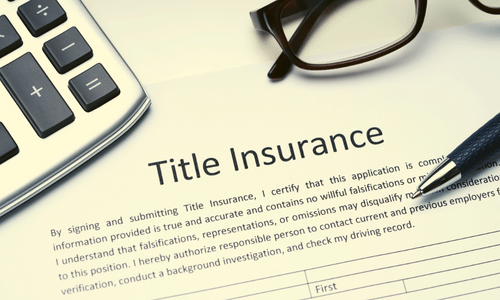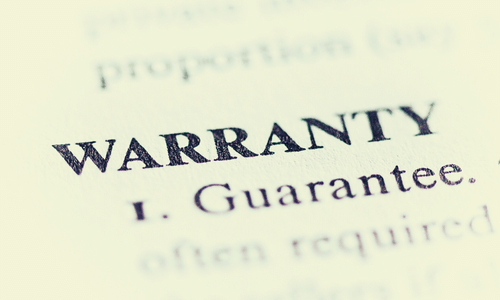When you buy a house, condo, or other real estate, you’ll likely need to get a title search and title insurance to make sure the property is yours and that there aren’t any hidden liens against it.
A specialized real estate attorney can help you conduct a title search. These professionals complete title searches daily in real estate transactions.
The right kind of title search and title insurance are important safeguards when buying property, especially if you are buying from an individual as opposed to a company or some other large entity that would be more likely to have clear titles.
While there are many things you can check before finalizing the deal, getting a clear title doesn’t always happen by accident. Here is what you need to know about how to know if a property’s title is clear:

What is a title search?
A title search is a review of the chain of title to a property – who currently has the ownership in the house, what the terms are, and who has had an ownership interest in the property in the past.
The title search will let you know if there are any liens against the property, who these liens belong to, and the amount of the debt. A clear title means there are no liens or encumbrances against the property. A title search will also let you know whether there are any recorded easements or covenants that apply to the property.
An easement is a right to use another property, like a utility company’s right to run power lines or a neighbor’s right to walk across your property. A covenant is a condition placed on a property to protect the neighborhood, such as a deed restriction that specifies what types of homes can be built on a lot.
Why is a clear title so important?
In a perfect world, a home seller would come to you with a completely clear title, free of all liens, encumbrances, and other debts. But in reality, you may still have to pay off a lien or two before you’re completely clear. If a title is encumbered, the seller will have to clear the lien or other debt before they can transfer their ownership interest in the property to you.
If the seller doesn’t have the money to pay off the lien, you might be on the hook for it. Or, you may have to renegotiate the sale price to account for the fact that the seller doesn’t have a clear title to the property. With a clear title, you know exactly what you are getting and who is responsible for any outstanding debts on the property.
This can be crucial if you are financing the purchase of the property. Lenders usually require you to have an insurance policy to protect them from any potential costs associated with an encumbered title.
How to check for a lis pendens
When someone files a lawsuit against a property owner, they file what is called a lis pendens with the county. A lis pendens is basically a notice saying there is a lawsuit against the property. This notice is typically recorded on a local public records database called the deed record.
While a lis pendens itself doesn’t indicate that there is a defect in the title, it’s still something you want to be aware of. A lawsuit against the property owner may indicate a problem with the title that could eventually put the title at risk. A lis pendens may also be filed against the property as a way of notifying interested persons that a lawsuit has been filed against the property.
How to know if there are encumbrances on the title
An encumbrance is anything on a title that indicates there is a debt attached to the property that was never paid off. An encumbrance can be a lawsuit, a lien, an easement or a covenant, or unpaid property taxes. Depending on the type of encumbrance, it may or may not be something you need to worry about.
For example, a lawsuit against the property may be something that happened a long time ago, or it may be something very recent. A lawsuit filed by someone claiming the seller owes them money for something might actually be valid and not something you would want to take a chance on.
A lien filed against the property is typically in connection with unpaid debt, like a contractor who did some work on the property and didn’t get paid. If the debt was a long time ago, and the amount is relatively small, you may decide to take your chances.

How to know if there are undisclosed warranties
A warranty is a promise that the seller made on the property that it is free of defects. When you buy a house, the seller is making a warranty that the house is structurally sound and otherwise in good condition.
You can’t sue the seller if there is a problem with the house later on, because they gave you a warranty. If there is an undisclosed warranty, it means the seller made promises that they didn’t tell you about, and those promises may come back to bite you later. If the seller made a promise to finish some work on the property but failed to complete it, that would be a warranty. If the seller said they would remove an old shed on the property, but didn’t do it, that would be a warranty.
How to know if the seller has paid any outstanding debts
You can call the county and ask if there are any recorded liens against the property. If there are, you can ask the clerk to let you know who the lien is from and how much it is for.
If the seller says they paid off any liens, you can verify that by asking for a copy of the payoff letter, which will show the county that the debt is satisfied and that the lien has been removed. You can also call the county to see if the lien has been removed from the title.
Conclusion
When buying real estate, it is important to know the details of the title. A title search will tell you who owns the property and what liens, easements, and other encumbrances are on the title.
A clear title means there are no liens or encumbrances on the title. A specialized real estate attorney can help you conduct a title search.

